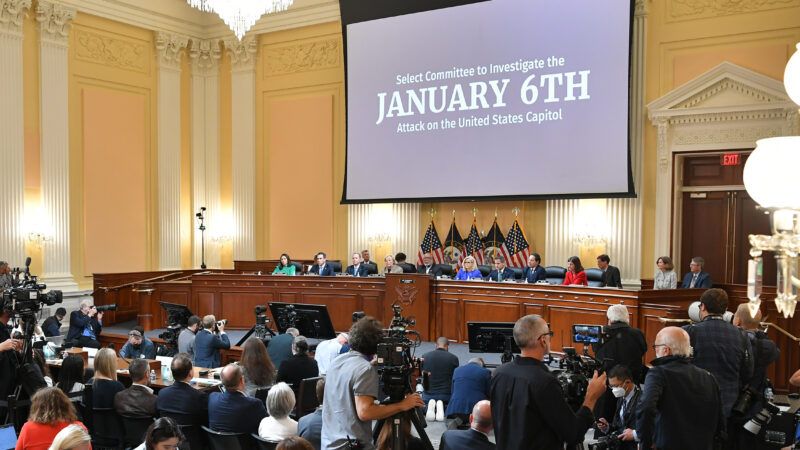Simple Reforms Could Prevent Election Chaos
There is bipartisan support to reform the Electoral Count Act to prevent another January 6th.

With the January 6 Committee's public hearings underway, now is an ideal time for Congress to reform the antiquated law that governs the procedures the rioters descended on the Capitol to disrupt.
The Electoral Count Act (ECA) defines the process when Congress meets every four years on January 6 to count the electoral votes for president and vice president. This meeting is mandated by the Constitution, which requires that all electoral votes be sent to Congress and counted in front of the House and Senate. This count is normally a formality, but the ECA includes a caveat with potentially enormous consequences. Congress can reject an electoral vote, the law says, if a majority of both the House and Senate finds that an elector's appointment was not "lawfully certified" or that the elector's vote was not "regularly given."
This provision was invoked by the eight Republican senators and 139 House members who attempted to reject the electoral votes of Arizona and Pennsylvania in 2021. These members of Congress treated the ECA as a license to relitigate election-law disputes that the courts had already settled. Their plans to oppose enough votes to swing the election gave false hope to many of Donald Trump's supporters, who came to view January 6 as the day the president's theories of election fraud would be vindicated.
This was never the intent of those who passed the ECA in 1887. They intended to draw a clear line of distinction between two stages of the election process. Disputes over the conduct of a general election were to be handled by the courts or other adjudicators established by the states, a process that determines which electors have been validly chosen. Once those electors have cast their ballots, Congress bears witness to the count and ensures that the electors themselves have complied with the Constitution's basic rules (such as not voting for two people from their own state).
Scholars including Professors Derek Muller and Stephen Siegel have convincingly shown that the original meanings of "regularly given" and "lawfully certified" were narrow, in line with this intent. These terms were not meant to allow Congress to overrule the courts on questions of election law and change the final outcome of a state.
But until these terms are defined in the ECA itself, members of Congress can continue to use the law to raise any objection they wish. The best way to ensure an orderly count in future elections is to amend the ECA to exhaustively spell out those few legitimate reasons Congress might have to discount an electoral vote. Doing so would remove any ambiguity over the limits of Congress's proper role during the count. Likewise, the text of the law should explicitly reject the false belief that the vice president (who presides over the count) can unilaterally reject an electoral vote.
Such reforms should not be a partisan issue. Neither party can predict who will control Congress or the vice presidency in the future, and both parties should prefer that election disputes be settled by the courts rather than by partisan politicians. Republicans who support maintaining the Electoral College system should support reforms that protect that system from last-minute gamesmanship. And Democrats should not jeopardize this unique opportunity for reform by attempting to bundle an ECA bill with other, more controversial election-law issues.
Congress should seize this rare moment while there is bipartisan momentum behind ECA reform. Waiting until 2023, when the next presidential campaign will be underway, could be too late. By then, both parties are more likely to be focused on who the immediate beneficiary of any change might be, making agreement on major reforms more difficult. No matter who is in power, it will always be preferable to leave complex, fact-intensive election-law disputes to the courts, who are better equipped to get the answer right.


Show Comments (111)